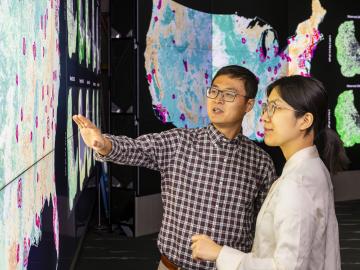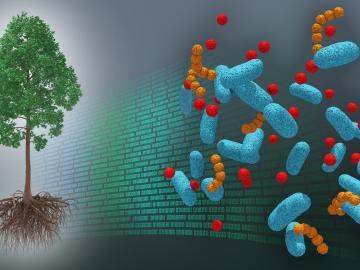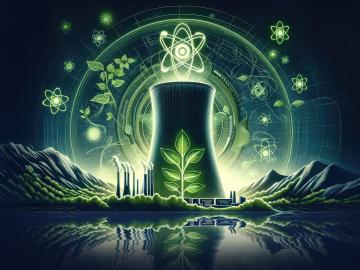Filter News
Area of Research
News Topics
- (-) Irradiation (1)
- (-) Statistics (2)
- 3-D Printing/Advanced Manufacturing (49)
- Advanced Reactors (12)
- Artificial Intelligence (30)
- Big Data (11)
- Bioenergy (24)
- Biology (23)
- Biomedical (18)
- Biotechnology (7)
- Buildings (15)
- Chemical Sciences (33)
- Clean Water (1)
- Climate Change (24)
- Composites (10)
- Computer Science (61)
- Coronavirus (17)
- Critical Materials (11)
- Cybersecurity (18)
- Decarbonization (20)
- Education (3)
- Element Discovery (1)
- Energy Storage (44)
- Environment (44)
- Exascale Computing (12)
- Fossil Energy (1)
- Frontier (16)
- Fusion (14)
- Grid (17)
- High-Performance Computing (31)
- Isotopes (19)
- ITER (2)
- Machine Learning (14)
- Materials (68)
- Materials Science (54)
- Mercury (2)
- Microscopy (18)
- Molten Salt (2)
- Nanotechnology (28)
- National Security (19)
- Net Zero (3)
- Neutron Science (56)
- Nuclear Energy (32)
- Partnerships (27)
- Physics (24)
- Polymers (13)
- Quantum Computing (10)
- Quantum Science (28)
- Renewable Energy (1)
- Security (11)
- Simulation (11)
- Software (1)
- Space Exploration (3)
- Summit (21)
- Sustainable Energy (35)
- Transformational Challenge Reactor (4)
- Transportation (29)
Media Contacts

Scientists at ORNL completed a study of how well vegetation survived extreme heat events in both urban and rural communities across the country in recent years. The analysis informs pathways for climate mitigation, including ways to reduce the effect of urban heat islands.

A first-ever dataset bridging molecular information about the poplar tree microbiome to ecosystem-level processes has been released by a team of DOE scientists led by ORNL. The project aims to inform research regarding how natural systems function, their vulnerability to a changing climate and ultimately how plants might be engineered for better performance as sources of bioenergy and natural carbon storage.

Anne Campbell, a researcher at ORNL, recently won the Young Leaders Professional Development Award from the Minerals, Metals & Materials Society, or TMS, and has been chosen as the first recipient of the Young Leaders International Scholar Program award from TMS and the Korean Institute of Metals and Materials, or KIM.




